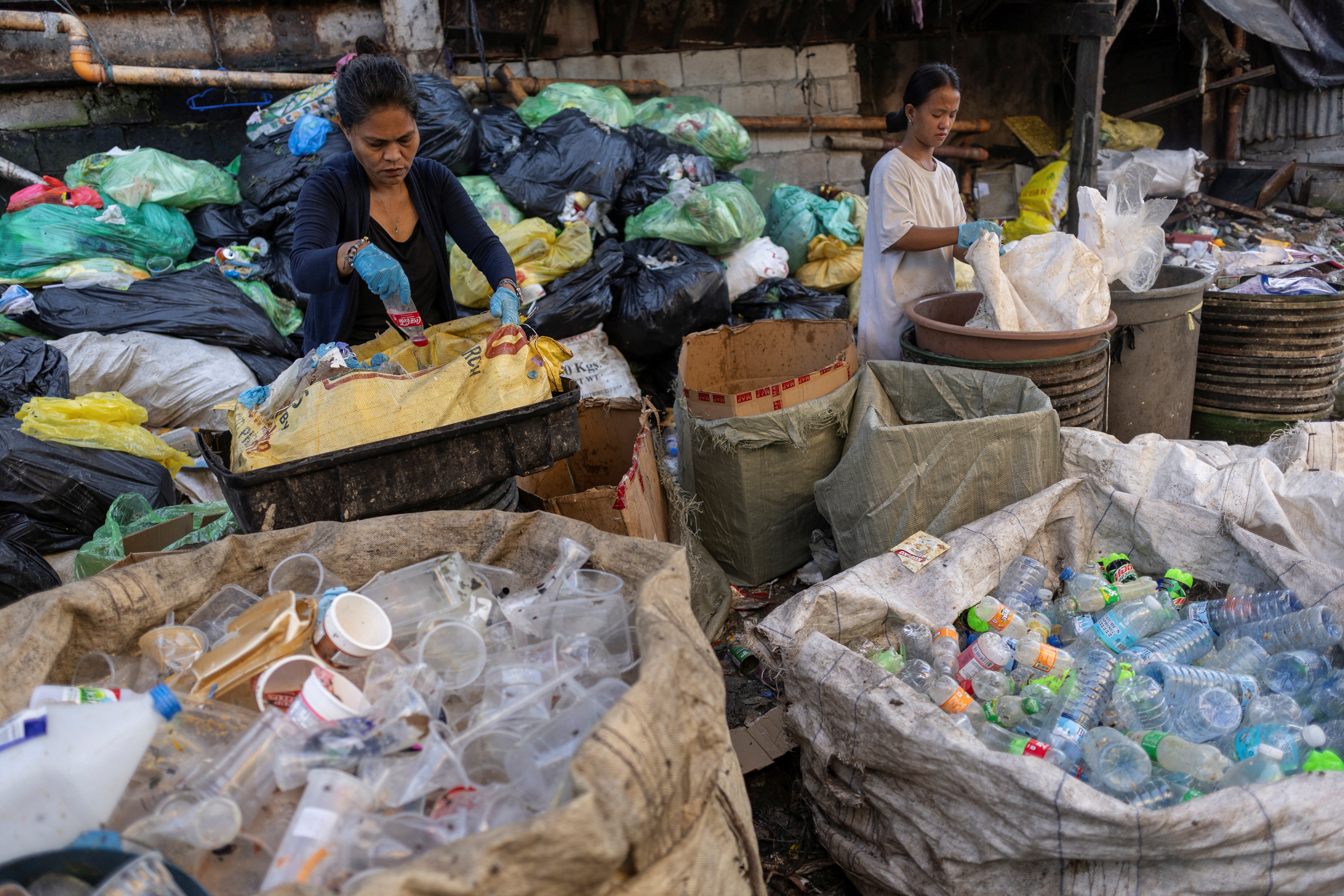This Asia-based global beverage giant is going circular

The company aims to achieve 100% sustainability of its PET bottles through recycling and plant-based materials by 2030 Image: REUTERS/Yuya Shino
- Plastic has brought great benefits to humanity - but also huge challenges.
- Japanese drinks giant Suntory has pledged to transition to a circular economy approach across its business.
- Businesses can lead this transition - but governments and civil society must also play their part.
The creation of plastic has brought many benefits to our lives and has transformed the global supply chain across all industries. However, its introduction has also led to significant environmental issues. Every year, 8 million tons of plastic enter the ocean, on top of the estimated 150 million metric tons that already circulate in our marine environments. As a beverage company that uses polyethylene terephthalate (PET) bottles for our products and in pursuit of our corporate mission to create harmony with people and nature, we are committed to doing our part to address this urgent issue and to devoting ourselves to technological developments, looking for ways to lead our peers to accelerate progress towards the resolution of global issues.
Last May, we established the Suntory Group Plastic Policy to transition to a more sustainable, recycling-oriented and zero-carbon business. Our 2R+B strategy enables us to promote the efficient use of resources through our measures to reduce and recycle our PET bottles, and aims to use bio-based materials for our PET bottles.
In terms of reduction, we use the lightest plastic bottle in Japan for our Japanese water brand, Tennensui, cutting down PET usage and allowing us to reduce the product’s overall environmental impact. As for recycling, in partnership with the technology firm Kyoei Sangyo, we developed Japan’s first bottle-to-bottle mechanical recycling system, which creates new PET bottles out of used PET bottles. We are also taking this one step further through our recently developed FtoP Direct Recycle Technology, a PET-preform manufacturing technology that streamlines the recycling process of making new PET bottles out of used ones. This first-of-its-kind innovation enables us to reduce our carbon emissions by 25% compared to previous processes and by more than 60% compared to using petroleum-based PET preforms, while also improving supply chain efficiencies.
We are also investing in innovation through our partnership with Anellotech, a green innovation and technology company based in the US. This partnership will allow us to produce 100% bio-based plastic bottles, and we are aiming to introduce these bottles into our supply chain in 2023.

We can’t combat the global plastics issue alone. Companies and key stakeholders need to lead through their actions and work together to develop smart, scalable solutions. Take Japan’s leadership in PET bottle collection, for example. Beverage companies follow industry guidelines for designing PET bottle packaging that is easy to recycle; consumers separate the label, cap and bottle when disposing PET bottles at their households; and municipalities collect PET bottles separately from other plastics. Through this, many used PET bottles are collected as a precious resource and their quality is preserved, increasing their likelihood of being recycled into new bottles, fabrics, household items or other goods. Thanks to these collaborative efforts within the industry, government and municipalities, and consumers, over 90% of PET bottles are collected in Japan on an annual basis.
While it does take time and effort, I believe that we can find ways to establish an efficient collection and recycling system in other regions if industry, government, academia, and civil society work together. It is essential to tackle this global plastics issue with agility, collaboration, and partnership on both the global and local level. The network and platform of the Global Plastic Action Partnership (GPAP) provides opportunities to meet and partner with stakeholders across the globe to bring plans into action, to share lessons and best practices, and to learn and be inspired from others. Suntory recently joined the platform and we are proud to work alongside members of GPAP to make strikes against plastic waste, and be engaged in transitioning to a circular economy for plastics.
What is a circular economy?
Don't miss any update on this topic
Create a free account and access your personalized content collection with our latest publications and analyses.
License and Republishing
World Economic Forum articles may be republished in accordance with the Creative Commons Attribution-NonCommercial-NoDerivatives 4.0 International Public License, and in accordance with our Terms of Use.
The views expressed in this article are those of the author alone and not the World Economic Forum.
Stay up to date:
Circular Economy
Related topics:
Forum Stories newsletter
Bringing you weekly curated insights and analysis on the global issues that matter.
More on Circular EconomySee all
Felipe Basso
November 13, 2025







